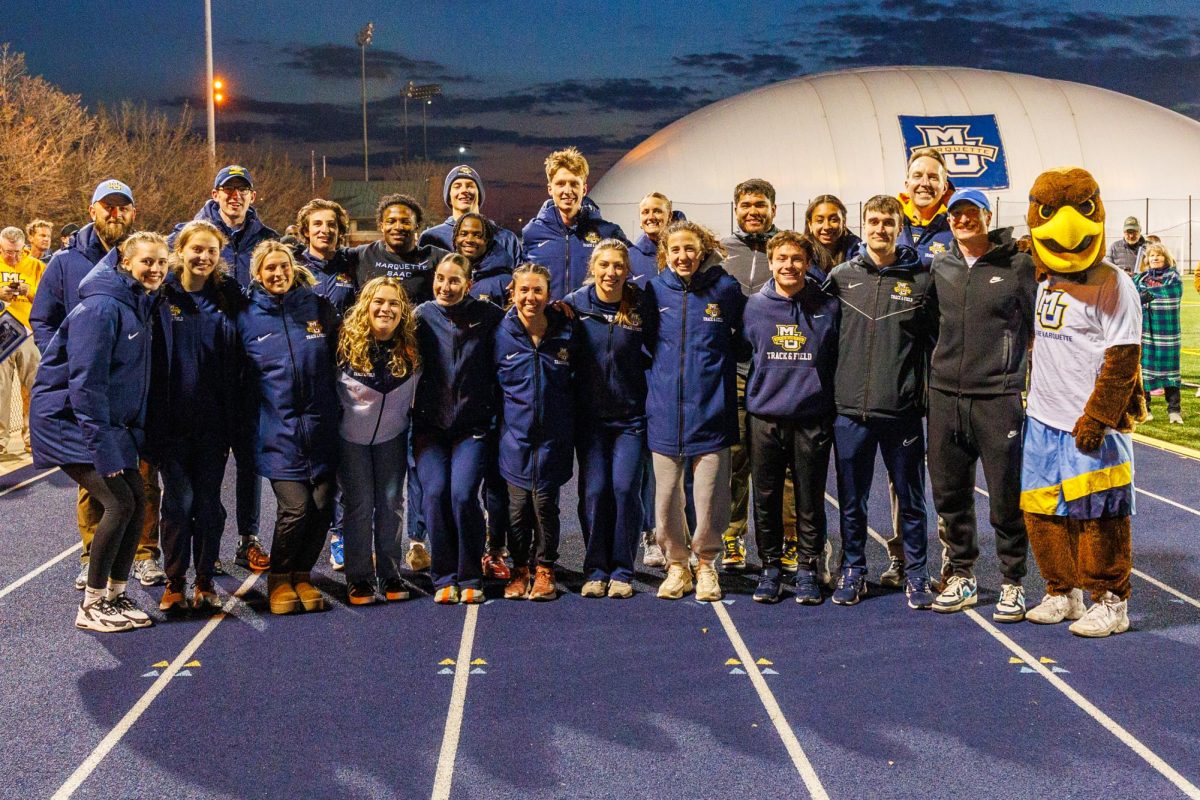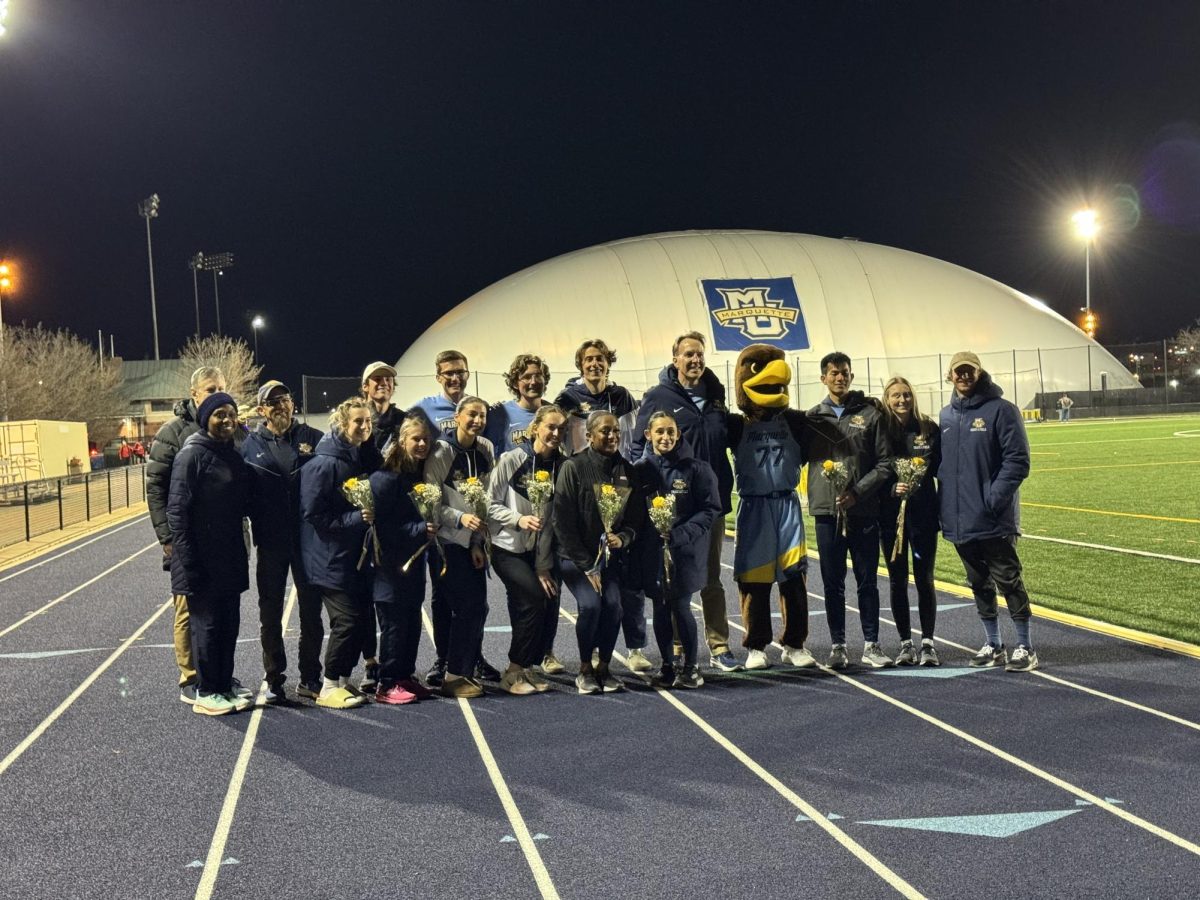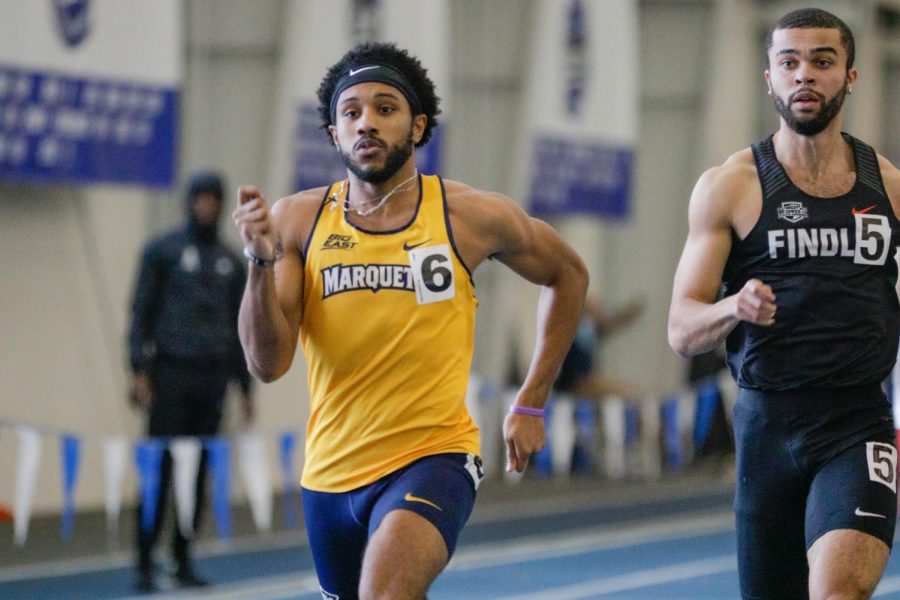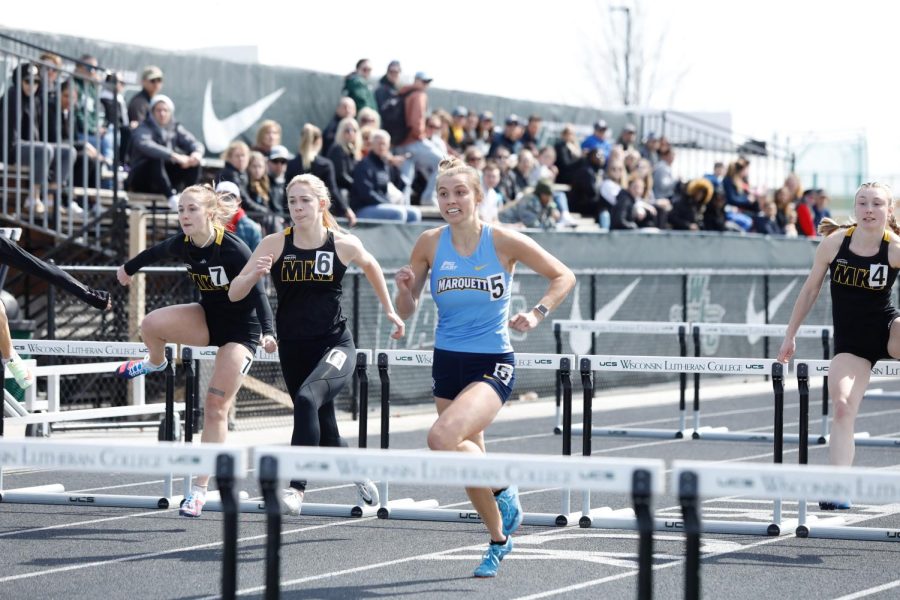Showing up to a Marquette track and field or cross country meet, the attention will almost always be given to the athletes. However, there is a group of students that serve the role of unsung heroes behind the scenes that play into the success of the program: the student managers.
“The relationships that they tend to build with the team is truly special,” head track and field coach Bert Rogers said.
In total, there are four managers who each have to list of set tasks to complete on an everyday basis. Such tasks include washing clothes, driving athletes to practices, and recording film at the meets.
Rogers said an important role for the managers to have is a relationship that is interceding between the athletes and the managers. Rogers mentioned Caitlin Doll, one of the team’s managers last year, as an example of this.
“It was a unique sort of love for Caitlin that the whole team had. She was a superfan, very supportive towards everybody, and just a very positive person,” Rogers said. “Sometimes we get those types of things from the managers too, of just being like a sort of, not a coach exactly, not a not necessary teammate, but sort of a superfan that’s there. All of this is just helping out and supporting the team.”
Junior, Meredith Schiferl, said her specific roles pertain to whatever the team needs.
“On meet days, I usually am taking pictures, coordinating meals if we’ve got something coming to the track,” Schiferl said. “I have to make sure everyone gets their food, and all of our athletes are nourished and everything.”
Schiferl became a manager during her sophomore year after learning the team was in need of a girl’s manager from some of her male friends on the cross country team.
“I found out through word of mouth and decided I wanted the job,” Schiferl said.
Tyler Formaro, a sophomore in the College of Health Sciences, said he was in the right place at the right time when he found out about becoming a manager.
“I became part of the team because of my roommate, distance runner, David Zeller,” Formaro said. “He got in contact with the coaches and everything. It’s been working out great.”
Formaro, who lives in Humphrey Hall, said his other roommate, sophomore distance runner Thomas Leonard, was a factor in him wanting this job.
“Freshman year, I wasn’t a manager and they would go off to their meet over the weekends and I just hear about it when I got back. Now, being able to actually go with them and watch them compete, I feel like it’s brought us closer,” Formaro said.
Rogers said each of the managers has become part of the team in many ways.
“We work with them quite a bit,” Rogers said. “It’s a very interesting in-between role between the coaches and athletes, just in that they get to have close relationships with people on the team and then also they get to know the coaches as well.”
He said one key attribute that every manager should have is attention to detail.
“It’s just like having all your ducks in a row, so to speak,” Rogers said. “We demand a lot (of them) and you’ve got to be on time. You got to be organized and you need to pay attention to where your tasks are. There are a lot of moving parts with a big team, especially like ours. With so many different groups and things going on, if you struggle with being organized, being a manager is not for you.”
Aside from managing the team, Schiferl is majoring in biomedical engineering, while Formaro is in the physical therapy program. Both said they find their studies beneficial to their work as managers.
“Being a manager taught me teamwork, figuring out how to work with people that you usually wouldn’t. I think will be helpful and beneficial after graduation,” Schiferl said.
Formaro said he is receiving hands-on experience as he gets to watch vividly how the team’s trainer (no all I know is that she is a female) prepare their athletes’ bodies on a daily basis.
“I want to help athletes who are injured or need help doing any type of stretching or physical therapy,” Formaro said. “I think it’s just very beneficial being in that athlete’s atmosphere so that if I do end up going into more of the sports side of physical therapy, then I’d be able to kind of know what goes in and out of that in the course of like track and field pertaining to all of the different athletes.”
Rogers mentioned that the managers are very essential to his team.
“There’s a lot of moving parts with a big team, and the managers are still very key to our success,” Rogers said.
This article was written by Johnnie Brooker. He can be reached at johnnie.brooker@marquette.edu.






